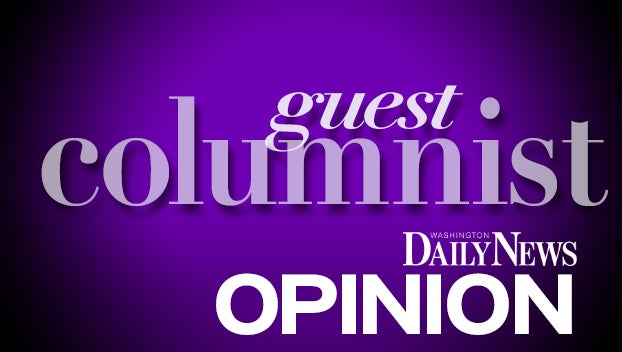Understanding limited voting in Beaufort County
Published 2:47 pm Wednesday, January 3, 2024
|
Getting your Trinity Audio player ready...
|
By: Ellen Brabo, For Washington Daily News
Have you found yourself recently approached to sign a petition, perhaps at the polls or even during a parade in Beaufort County? If you’re like me, you might be asking, “Why does this matter to me, and what exactly does it mean?” The circulating petition seeks 5,000 signatures from Beaufort County residents, aiming to secure a spot on the 2024 ballot. The goal? To give constituents the chance to decide if Beaufort County should transition from limited voting to district representation. But let’s pause for a moment. What is limited voting, and is it as straightforward as checking a box on a ballot to reshape the electoral system? In short, it’s not that simple, and I’m here to guide you through the intricacies of the matter.
What is Limited Voting?
Breaking down limited voting to its simplest form, it means that voters are restricted to casting just one vote in an election, even when there are multiple positions available. In Beaufort County, this restriction plays a crucial role in our local elections, particularly when choosing the members of the Beaufort County Board of Commissioners. In each election cycle, either four or three seats are open for contention, and all these positions are categorized as “at-large.” To draw a contrast, consider the election process for the Washington City Council, where you can allocate up to five votes, one for each available seat.
However, when it comes to the Board of Commissioners in Beaufort County, you’re limited to casting just one vote during the election cycle. It’s worth noting, though, that this one vote effectively allows you to choose two commissioners to represent your interests, offering residents the opportunity to pick two out of the seven candidates, unlike the district voting system where you only get to vote for one representative from your specific district. Understanding this nuance is essential in grasping the dynamics of our current electoral system and the potential implications of the proposed change. ![]() Loading ...
Loading ...
The Origins of Limited Voting in Beaufort County
Before the introduction of limited voting, candidates were selected from five township districts, requiring residency within the district, but the voting process extended county-wide. The shift to limited voting resulted from a federal court order prompted by a case—David Moore v. Beaufort County, North Carolina—filed under the Voting Rights Act of 1965 (VRA).
The plaintiffs, led by Moore, contended that the previous election method, while not intentionally discriminatory, disproportionately affected black voters. The court, in its published judgment, determined that the existing voting approach deprived black voters of an equal opportunity to elect candidates of their choice, directly violating Section 2 of the VRA. Section 2 prohibits voting practices or procedures that discriminate based on race, color, or membership in a language minority group.
Additionally, the court order brought about an expansion of the Board of Commissioners from five to seven members, each serving staggered four-year terms.
The Right to Petition Referendum
Here is where complexity sets in. The Right to Petition Referendum was introduced by the North Carolina General Assembly in 1998. This referendum grants Beaufort County residents the right to initiate a petition on proposed alterations to the county’s electoral framework. This includes both the Board of Commissioners and the Board of Education.
In short, the process can be started through an initiative petition, which requires signatures from at least 15% of qualified voters in the county, or 5,000 residents, whichever is less. Once a valid initiative petition is received, the county board of elections would then schedule a special election, coinciding with the next countywide election held more than 90 days after receiving the petition.
Challenges to Change
Seems straight forward, doesn’t it? Here’s the twist. When wielding the Right to Petition Referendum to make changes to limited voting, even if majority of the votes in the special election were in favor of proposed changes, the county must still navigate an additional hurdle.
They need to have the court order overturned and receive preclearance regarding any changes from the U.S. Justice Department, a requirement of the VRA. This is to ensure proposed changes align with the anti-discrimination provisions.
Current Beaufort County Attorney, David Francisco, shed light on the challenges of altering a long-standing judgement. While anyone can file a motion to set aside or rehear the case, the practicality and likelihood of success remain uncertain. Francisco highlighted the expense and complexity of pursuing a legal change, making it a daunting undertaking.
Conclusion
Navigating the intricate process of implementing change is undeniably complex, with a journey through the court system potentially spanning a year – provided you can secure a hearing in the Eastern District Court. However, the challenges posed by this process do not render change impossible. Yet, any alteration to our voting procedures and the way we choose our representatives must convincingly demonstrate that it won’t compromise the rights of minority voters.
The shift to limited voting in Beaufort County, despite its complexities, has been transformative. Since its inception in 1992, this change has evolved Beaufort County from a place that had never elected minority representation to one that has seen the election of five black county commissioners. Our electoral system stands as a testament to the persistent pursuit of equitable representation in the democratic process. This pursuit, crucially, extends beyond merely achieving district representation to encompass demographic representation as well. It’s a commitment to a political landscape that truly mirrors the diverse voices within our community.






